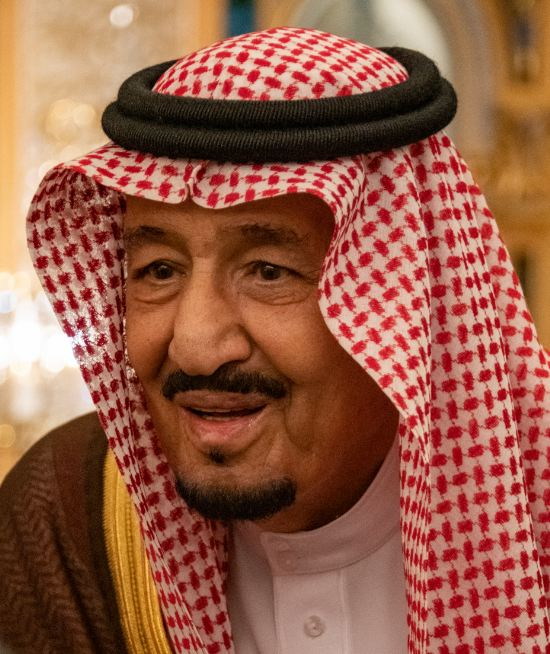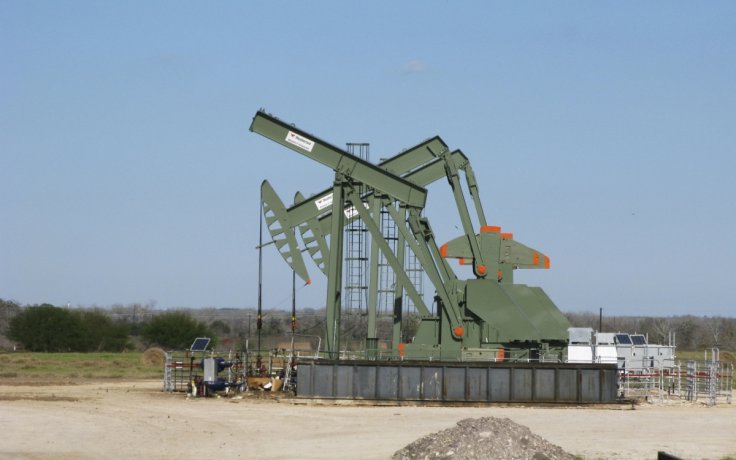Major Saudi Arabian daily Arab News front-paged a positive sounding story titled 'Kingdom will win oil price wars, experts say' on Thursday. At least one of the oil nations will 'emerge from the pandemic stronger, both economically and geopolitically,' and that's Saudi Arabia, it cites one of the experts as saying.
The basic premises are three. The first is that Saudi finances can weather the coronavirus storm, and the second is that the kingdom will eventually win higher revenues and a bigger share of the oil market when the crisis passes. The third argument is that while the high-cost American shale industry will take years to recover, Saudi can bounce back faster as it's a low cost producer.
"Oil is the only commodity where the lowest-cost producers have contained their production and allowed high-cost producers to benefit. When demand recovers this year or next, we will emerge from it with the lowest-cost producers having increased their market share," says Sir Mark Moody-Stuart, former chairman of Royal Dutch Shell.

Supporting this line, Jason Bordoff, professor and founding director of the Center for Global Energy policy at New York's Columbia University, adds: "Depending on how long oil demand remains depressed, US oil production is projected to decline from its pre-coronavirus peak of around 13 million barrels per day."
However, there are significant other aspects according to many experts. The Jason Bordoff-Moody-Stuart line upholds, and explains, the Russia-Saudi Arabia oil price war that effectively targeted the US shale production. The bounce back theory is built on a steep revival in demand, which doesn't look like an imminent possibility. The coronavirus pandemic will take another two years to run its course and energy demand will likely remain muted during this time. It is to be seen if Riyadh can hold on to oil prices in the range of $30-40 for that long.
Coronavirus pandemic will hasten the arrival of Peak Oil
There are some analysts who believe that the coronavirus pandemic will bring about the arrival of peak oil faster than expected. Experts differ on the peak oil timeline -- some believe the oil prices demand will peak around 2040 and then start a steady decline, others think it can happen by 2035. The depth and breadth of the coronavirus contagion has forced analysts to think that peak oil can even arrive as early as 2030.
If oil prices start declining in the next 10 years, Saudi Arabia will not have been prepared to deal with the serious consequences. An IMF report earlier this year laid down this prospect. This report was released in early February, before the coronavirus outbreak became a global contagion.

According to this report, the oil nations in the Persian Gulf are poised to lose around $2 trillion in financial wealth within the next 15 years, when the oil demand nears peak levels. "Without decisive economic reforms, the richest Middle Eastern states could exhaust their net financial wealth by 2034 as the region becomes a net debtor, the fund projects. Within another decade, their total non-oil wealth would also be exhausted," the Economic Times reported, citing the IMF report.
Oil accounts for 42 percent of Saudi Arabia revenues
Saudi Arabia had increased budget spending steeply for many years until the oil bull run ended in 2014. This has led to a corresponding rise in the country's fiscal break-even oil price. The minimum oil price range that Saudi Arabia needs to balance its budget is pegged at $85 per barrel. By comparison, Russia's fiscal break-even petroleum price is $42.50 per barrel. In other metrics, while Russia's oil and gas sector contributes about 30 percent of the GDP, oil accounts for 42 percent of Saudi Arabia's GDP and constitutes nearly 85 percent of revenue.
If oil demand remains suppressed for longer, Saudi Arabia will face serious fiscal challenges. Hopes that a US shale oil collapse will give a much needed price bump-up may not work to the advantage of Saudi Arabia and Russia if the world energy demand moves south. Besides, a shale recovery cannot be ruled out either. Most marginal shale drillers will fold up in the aftermath of the coronavirus epidemic but some will push for technological breakthroughs that will help lower production costs.
Writing in the Wire, energy expert and author Dilip Hiro pointed out that in 2015 the US shale oil industry, under pressure from cheap Saudi oil, reduced its breakeven point from $65 to $46 a barrel. A further squeeze on this side can give shale a fighting chance.
"Companies go bankrupt, but rocks don't go bankrupt ... When this all shakes out, there will be other people to develop shale," says Daniel Yergin, the vice-chairman of IHS Markit Ltd, according to WorldOil.









